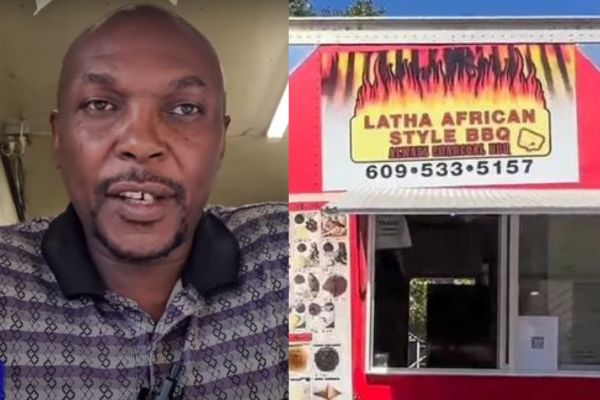The food service industry regarding the sale of affordable meals has become one of the most lucrative businesses and it is no doubt that Kenyans have taken up the venture, operating food stalls and mini-hotels famously known as ‘Kibanda’ or ‘Kibandaski’.
One man from Limuru decided to take it up a notch higher and install a food cart in the area of Portland, Oregon in the US. Eutycas Macharia, owner of Latha African Style BBQ decided to venture into the business, noting the city is a hub of diverse cultures which have given rise to award-winning culinary experiences. READ FULL STORY
Having tried his luck at business in Kenya, he was devastated at how long it would take for him to pick. He had a butchery in the Zambezi area in Kikuyu, which built his experience in handling different types of meat, grilling as well as general cookery. By the time he relocated to America, he was a meat connoisseur.
The food vendor arrived in the US with a dream to have his own eatery where he would put his skills to work. To make it there he would first have to get a job to survive, landing in the meat industry, where he learnt about processing, packaging, marinades and distribution.
“My father told me not to just be a good employee, be a good employee while sourcing for capital for your own business because even your employer did the same,” he said in an interview.
After some time, he launched his barbeque business, lending his services for hire to Portland residents. He also perfected his marinade skills, launching his own sauce which boosted his income.
Business was booming for Macharia and he felt the need to expand his barbeque business to a physical location. He opened the Latha African Style BBQ food cart, selling local Kenyan cuisine including ugali, greens, chapati, fish, chicken, lamb and beef.
A big bulk of orders comes from customers online, as the business can be found on food vending platforms such as Uber Eats, Door Dash and GrubHub.
He detailed the challenges he has experienced through his journey, including licensing which he said could paralyse operations at the cart. The State of Oregon requires one to prepare food sold in makeshift structures in separate commercial spaces to mitigate contamination.
The vendor sources his meats from livestock auctions and through consultations with ranchers and farmers.
Macharia declined to share how much the venture makes him, stating that he runs multiple businesses and would not want to mislead a prospective restaurantier with false numbers.
He advised Kenyans wishing to venture into business in the US to carve out their niche and seek to be problem solvers in society.
“Try to invent what you do not see in the society, have a goal and work towards it in your own way. Everyone has a dream, and do not sleep on it, because someone is learning from you,” he said.
He seeks to franchise the business, by expanding to other locations in Oregon, and called on anyone interested in opening a restaurant to reach out to him and he will offer his products as starting stock.
He is the Chairman of the Association of Kenyans in Oregon and has affirmed that he is available to support any Kenyan wishing to move to the region to get on their feet in terms of settlement and job opportunities.







